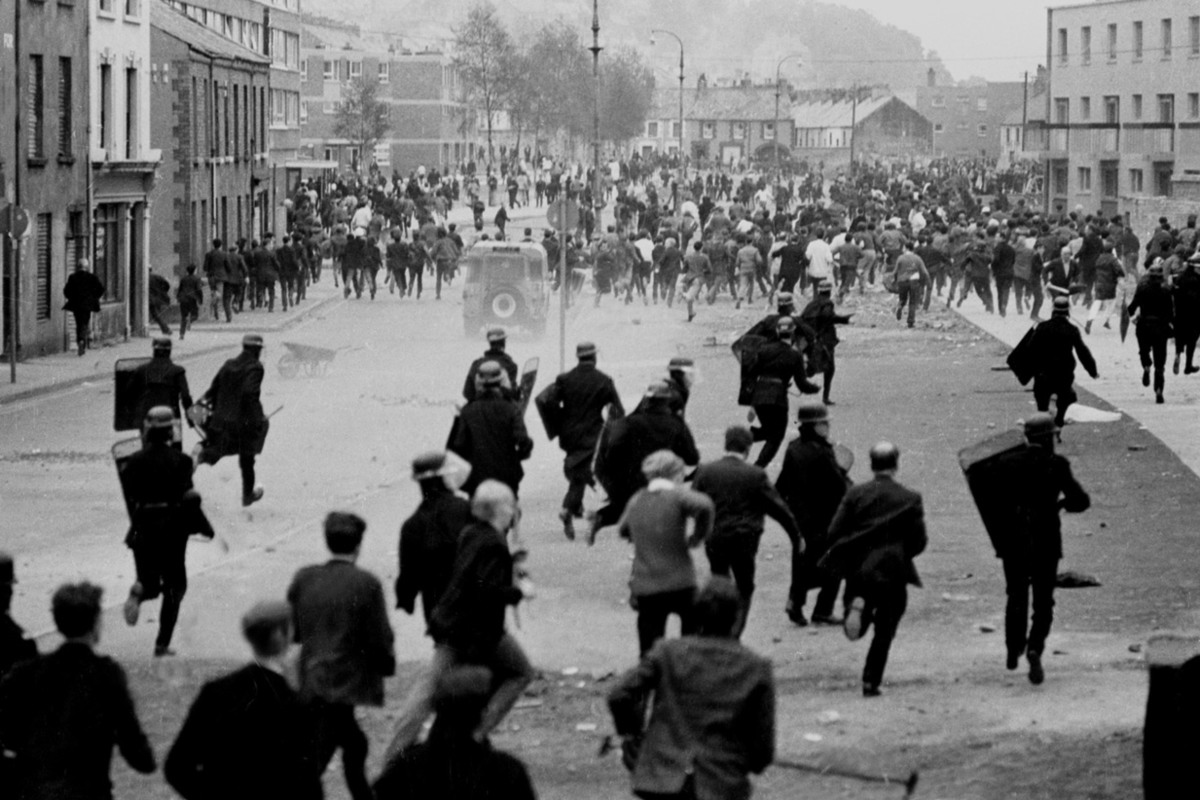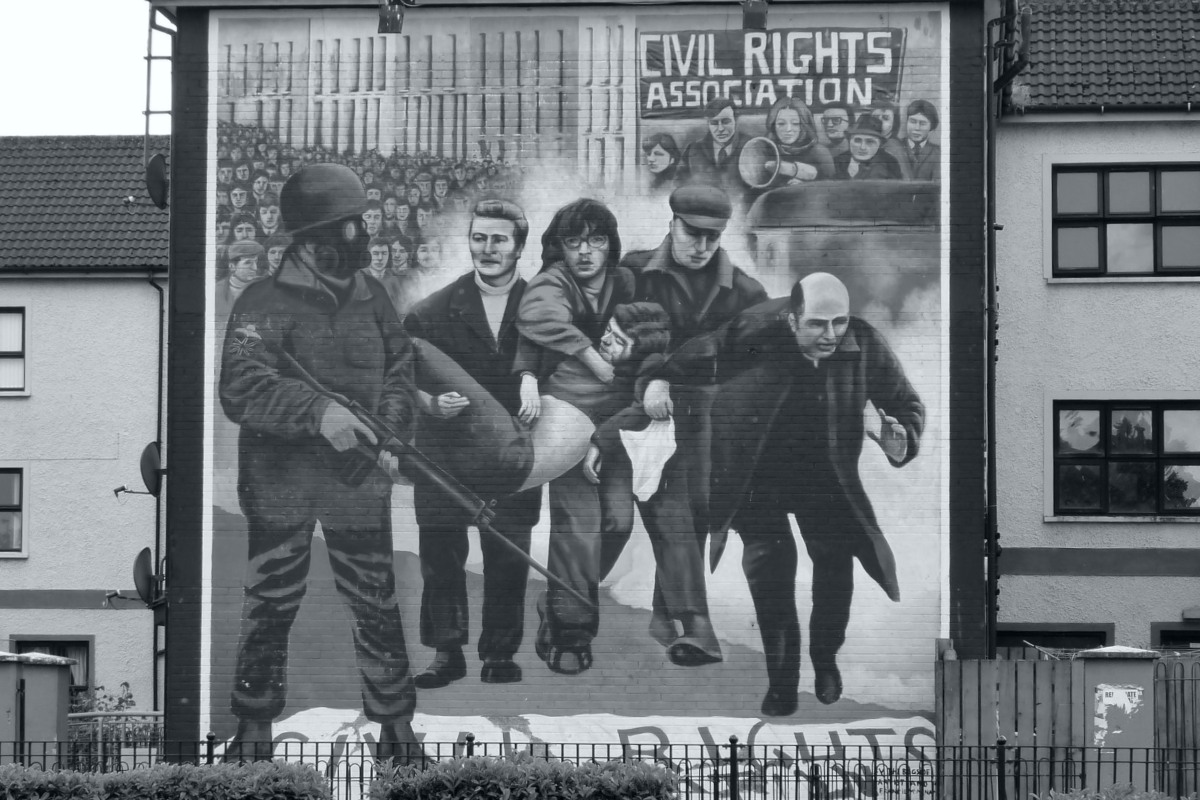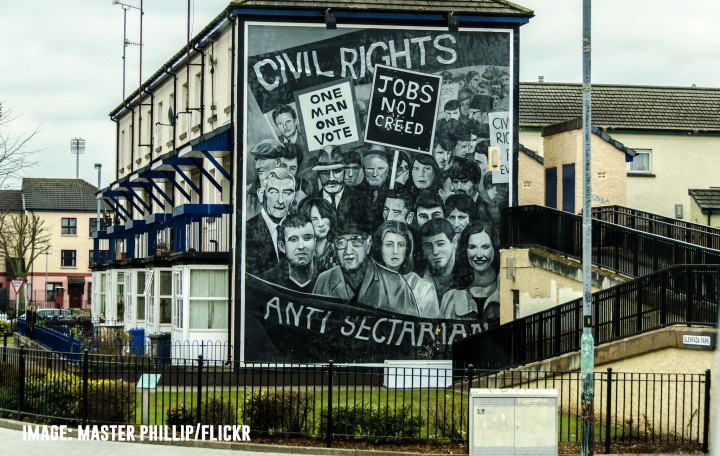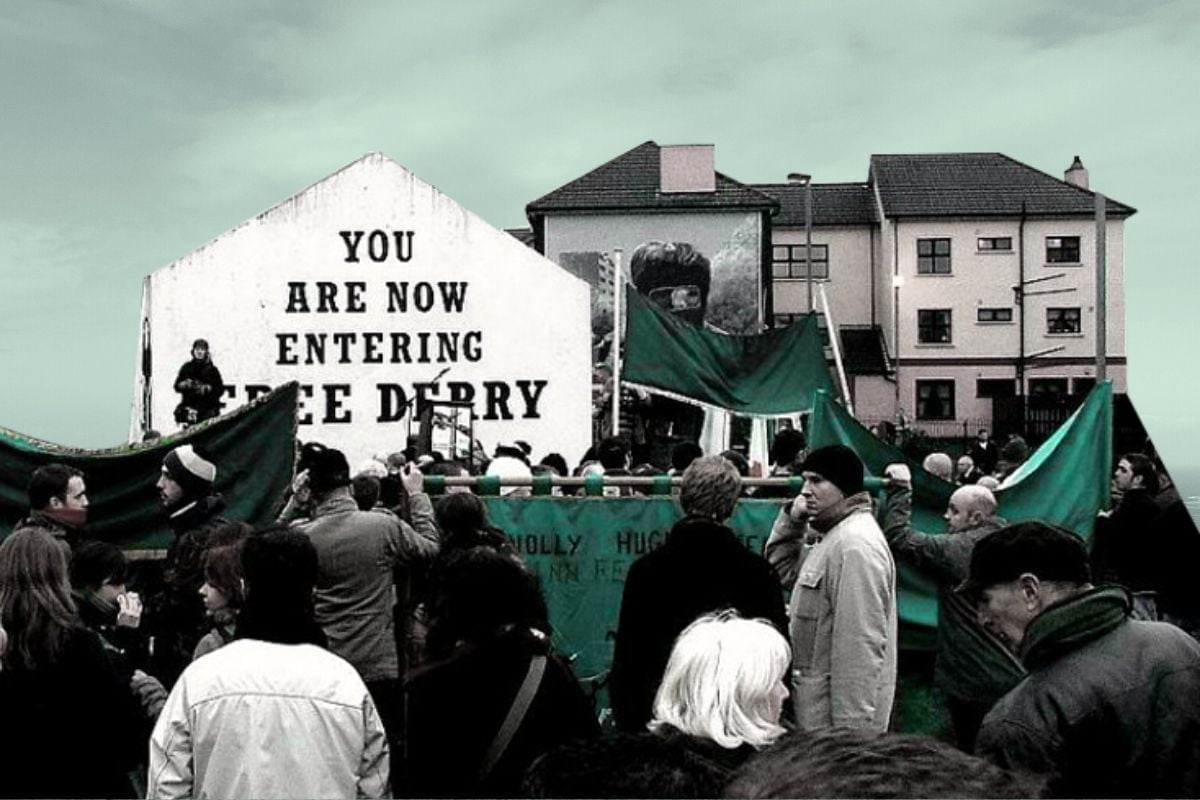50 years ago today, British soldiers opened fire on a civil rights demonstration in Derry, in the North of Ireland, killing 14 people. Only the struggle for a Socialist United Ireland can deliver justice for the victims of British imperialism.
30 January 2022 marks 50 years since Bloody Sunday, when the British Parachute Regiment murdered 14 innocent civilians in the North of Ireland (one died later after months in hospital).
Those killed had been participating in a civil rights march through a residential area in Derry in the North of Ireland, when demonstrators were attacked by the army.
Six of those shot on Bloody Sunday were only 17 years old; in total, eight were under 22. Another 13 civilians were injured in this atrocity, left with life altering injuries, or suffering from mental distress.
Partition and abuse
For the preceding 50 years before Bloody Sunday, the North of Ireland had been ruled by a one party government, the Ulster Unionist Party, which came to power following Partition.
This regime had overseen a plethora of different civil rights abuses, with systemic discrimination and repression against Catholic communities.
Electoral areas were gerrymandered to ensure a monopoly on power by the Unionists. Housing was largely allocated to Protestants, with it being common for several Catholic families to be crammed into one house. Importantly, in this respect, whilst only householders could vote, business owners could get several votes.
This desperate injustice caused resentment to brew over the decades following Partition, with only a spark required for the situation to erupt in a social explosion.
Eruption and escalation

In the late 1960s, there was a small but growing movement for civil rights in the North of Ireland. And it was in Derry that the rumblings of discontent would find their catalyst.
The sectarian monster of Ulster loyalism, which had been created by the British, frequently (and violently) attacked civil rights marches. And in October 1968, a small march was attacked by the Royal Ulster Constabulary (RUC), exposing the brutal intransigence of the Orange state.
The attack was televised and the images were broadcast around the world – and importantly around Ireland.
While around 400 marched in Derry, in the following weeks tens of thousands were on the streets. The situation erupted, escalating to the Battle of the Bogside and ‘Free Derry’, when the hated RUC were denied entry to much of Derry.
Troops sent in

The Westminster government watched these events unfold with alarm, ultimately opting to introduce the British army rather than let the situation spiral out of control.
With the threat of a pogrom against Catholics, British troops were deployed, supposedly to ‘protect’ the Catholic population.
The Marxists opposed the sending in of British troops and warned that they would not protect the Catholic working class. Instead, the Marxists called for the formation of non-sectarian self-defence committees, based on the trade unions.
It was the right-wing Republicans around the Provisional IRA, however, who were the only sizeable group who had guns and who were prepared to use them. They, in turn, recruited Catholic youths in droves – particularly in the wake of imperialist horrors such as Bloody Sunday.
The ‘armed struggle’ of the IRA, however, did not lead workers any closer to a united Ireland. Instead, all it brought was death and misery for the working class, by substituting class struggle for individual acts of terrorism.
This was the beginning of the period of violence in the North of Ireland known as ‘The Troubles’, which would last for decades, widening the sectarian divisions amongst workers.
Lies and smears
In order to stabilise the situation, the North of Ireland’s government also reintroduced internment (imprisonment without trial) under the provisions of the Special Powers Act in 1971. Almost 2,000 people were arrested, which became another target of the civil rights movement’s campaign.
This injustice was what the civil rights movement was protesting on Bloody Sunday. It shows the arrogance of British imperialism that its agents would murder 14 innocent civilians in broad daylight for protesting a bona fide breach of civil rights on its own doorstep.
For decades, the British establishment, in cahoots with the lying gutter press, claimed that these men were nailbombers and IRA gunmen, and that the Parachute Regiment acted in self-defence.
A cover up was planned – and the Widgery report, published 11 weeks after the event, achieved this purpose.
The Widgery report smeared the victims as dangerous criminals, looking for a vicious encounter with the police. British officers even claimed for some time that they had been shot at, which has since been proved to be a lie. The dead were innocent victims of British imperialist oppression.
As the Tory Prime Minister of the time, Edward Heath, disclosed to Widgery: “[We are] fighting not only a military war but a propaganda war.”
Atrocity and agony

The life-shattering effects of this atrocity are too extensive to detail in full here.
Kevin McElhinney, 17, was murdered as he tried to crawl away from the Paras. Hugh Gilmore, 17, was shot in the back fleeing the Paras. Jim Wray, 22, was shot twice – the second as he lay already fatally wounded.
Even in a case of survival, the Parachute Regiment shattered lives.
One man, Patrick Campbell, could no longer work after being shot in the back by the ‘Paras’ while trying to flee the massacre. He would spend years trying to put on a brave face for his nine children while enduring ongoing pain from his injuries. Ultimately he would turn to drink to find some sort of solace, and would die at only 53.
No justice under capitalism

50 years on, despite these horrific stories, there have been no prosecutions for Bloody Sunday.
At the same time, there has been a storm of hysteria against any attempts to do so – as in the case of the infamous ‘Soldier F’, whose prosecution was dropped – by the same reactionary press and imperialist establishment that slandered these innocent civilians at the time.
A great hue and cry is made about the poor old men being dragged through courts for events 50 years ago. But what about the poor young men who missed out on those 50 years? Or the children who grew up without fathers or brothers?
In any case, Soldier F was just one man, who was thrown under the bus by the British establishment in an attempt to put the whole issue to rest.
It is all the generals and high-ranking officials of the British army who ordered the soldiers to shoot on that day. It is the army and the British state that murdered these civil rights protestors. Paratrooper F was a simple scapegoat.
The truth is that British imperialism has slaughtered and repressed the Irish for years.
The capitalist courts can never be relied upon to redress the historic crimes of British imperialism. Only the struggle for a Socialist United Ireland can deliver real, lasting justice.






